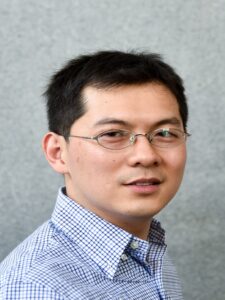
Dr. DERRICK ONG
ABERRANT STEM/PROGENITOR CELL BEHAVIOR DURING AGING AND CANCER
ABSTRACT:
Adult stem cells, with the unique property of performing self-renewal and multi-lineage differentiation, are essential for maintaining homeostasis and function of various organs in our body, including the hematopoietic system and central nervous system. Aberrant stem cell behavior leads to disease as evidenced during aging (e.g. loss of regenerative potential and aberrant differentiation) and cancer (e.g. uncontrolled self-renewal activity, robust tumorigenic potential and therapeutic resistance), underscoring the importance of understanding the molecular pathways and processes governing whether stem cells pursue a path of cellular death/senescence hence aging versus one of deregulated growth and immortalization hence cancer. In this talk, I will present one of our current studies that establish a link between chromatin plasticity and tumor heterogeneity in cancer.
BIOGRAPHY:
Derrick obtained his Bachelor in Science (1st class Honors) and Masters in Biology at the National University of Singapore (NUS), and Ph.D. (Chemical Biology) at The Scripps Research Institute (TSRI), USA, where he trained under Prof. Jeffery Kelly, a pioneer in the field of protein homeostasis. Next, he joined the laboratory of Prof. Ronald DePinho, a world expert in telomerase, aging and cancer, at Dana Farber Cancer Institute/ Harvard Medical School, USA, for his postdoctoral training. The laboratory subsequently relocated to the University of Texas MD Anderson Cancer Center (UT MDACC) when Prof. DePinho assumed the role of President of the largest cancer center in USA. Derrick joined the Department of Physiology at NUS as the President’s Assistant Professor in 2017. His research interests lie in the area of brain stem cell biology, focusing on understanding how aberrant brain stem cell behavior contributes to aging and cancer.



